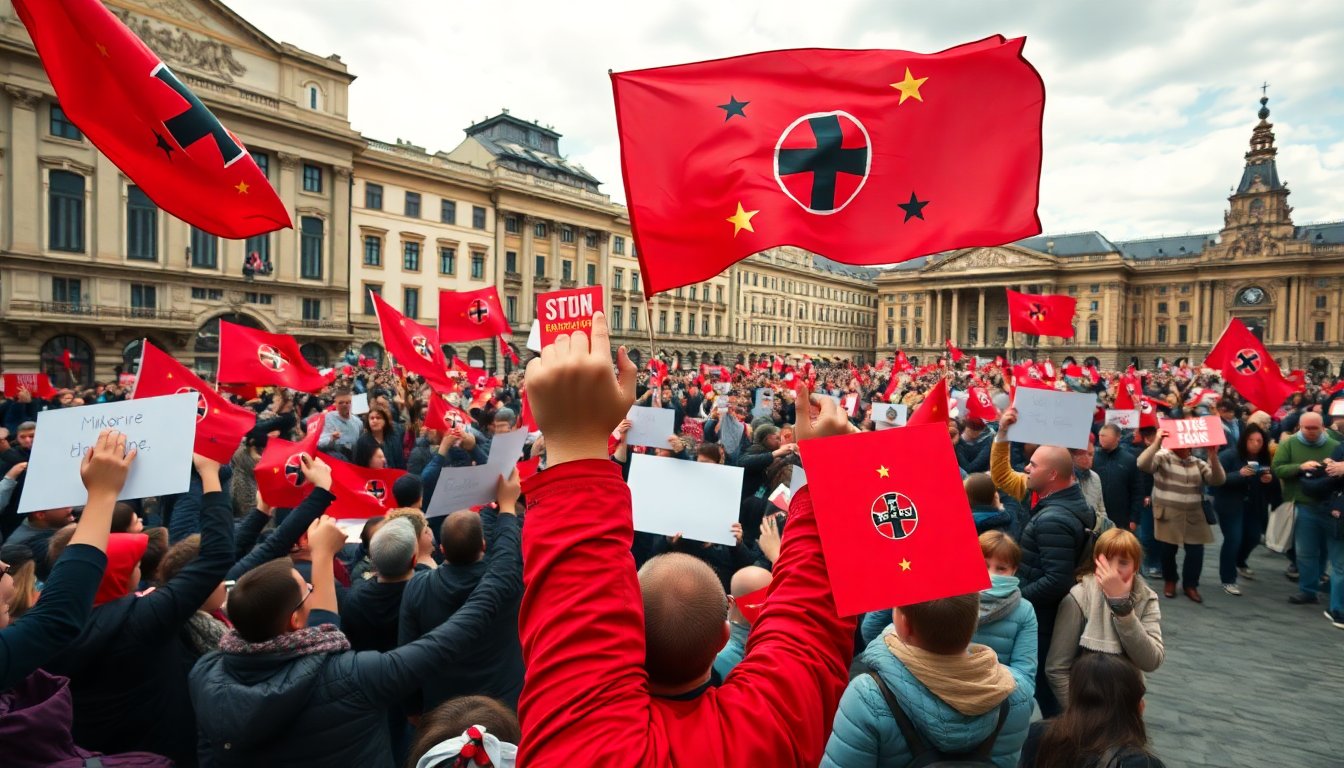Table of Contents
For over a year, the streets of Georgia have echoed with calls for change. Protests erupted following disputed parliamentary elections in which the ruling party, Georgian Dream, claimed victory amid allegations of fraud. The political landscape shifted when the government halted the country’s bid to join the European Union, further fueling public discontent.
The ongoing unrest highlights a struggle beyond mere election results. It signifies a broader fight against the erosion of democratic institutions and civil liberties. Persistent demonstrations, despite violent crackdowns and restrictive laws, reflect the resilience of the Georgian populace.
The deteriorating political landscape
The past year has witnessed a significant regression in Georgia’s democratic framework. Former defense minister Vasil Sikharulidze states that the situation mirrors a comprehensive state capture by the ruling party. Indicators of the escalating crisis include the systematic dismantling of civil society, pressure on opposition leaders, and interference in educational institutions.
Government response to dissent
Public protests have faced a violent response from law enforcement. Reports detail police brutality, including the arrest and beating of demonstrators, as well as intimidation tactics. Alarmingly, some officers involved have evaded accountability and, in some cases, received rewards. This climate of fear has led to over 120 political prisoners in a nation of 3.5 million.
The government has disseminated misleading narratives, alleging that external forces aim to drag Georgia into conflict with Russia. This rhetoric aligns with Russian propaganda intended to undermine the country’s democratic aspirations. As the government freezes progress toward EU integration—historically a unifying issue—the streets of Tbilisi and other cities resonate with demands for freedom and fair electoral processes.
International perspectives and implications
As the situation in Georgia intensifies, the European Union has condemned the government’s actions. Various institutions, including the European Parliament, have criticized the political climate, highlighting the politically motivated arrests and the decline in democratic norms. The EU has labeled the recent elections as unfair, marking a significant setback for Georgia’s aspirations for membership.
The U.S. response
While the EU actively condemns the Georgian government’s actions, the U.S. response has been notably subdued. Traditionally viewed as a steadfast ally, Georgia’s relationship with Washington has soured as the ruling party distances itself from Western ideals. The U.S. State Department has criticized the anti-democratic measures, stressing that democratic mandates cannot be secured through the suppression of dissent.
Despite this, U.S. engagement has diminished, reflecting a shift in Georgia’s political alignment. The current government’s actions have undermined its credibility as a reliable partner, prompting a cautious approach from American officials.
The heart of the protest movement
The ongoing protests are sustained by the unwavering commitment of the Georgian people. This grassroots movement comprises citizens from diverse backgrounds—students, professionals, and everyday individuals. Their widespread involvement underscores a shared understanding that Georgia’s future hinges on preserving democratic values.
Even amid threats of imprisonment and violence, many Georgians continue to rally for their cause. The determination to resist autocratic tendencies is evident, as individuals who have faced arrest return to the streets, driven by a collective consciousness that rejects any form of Russian-style governance.
The ongoing unrest highlights a struggle beyond mere election results. It signifies a broader fight against the erosion of democratic institutions and civil liberties. Persistent demonstrations, despite violent crackdowns and restrictive laws, reflect the resilience of the Georgian populace.0
The ongoing unrest highlights a struggle beyond mere election results. It signifies a broader fight against the erosion of democratic institutions and civil liberties. Persistent demonstrations, despite violent crackdowns and restrictive laws, reflect the resilience of the Georgian populace.1


